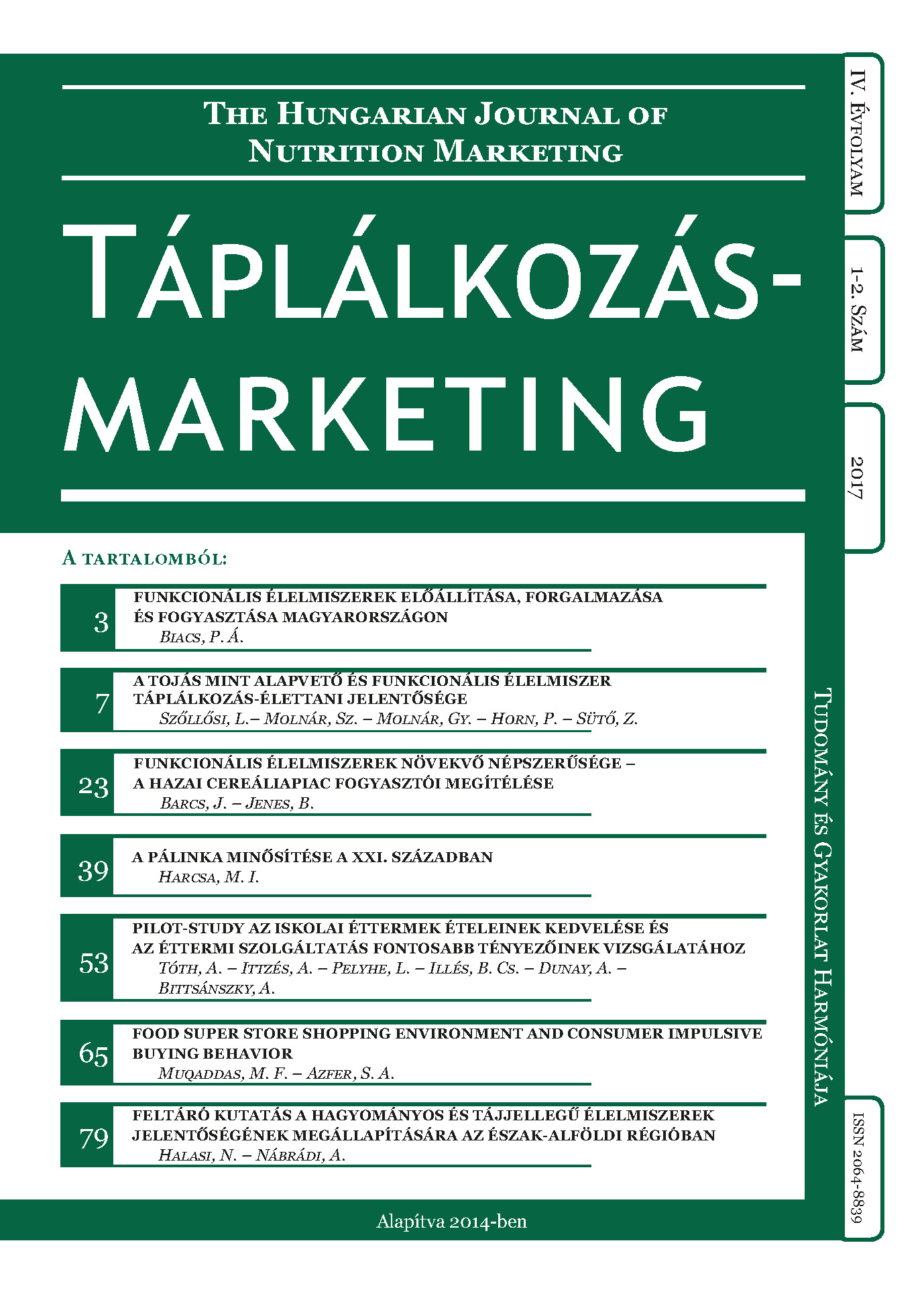A tojás mint alapvető és funkcionális élelmiszer táplálkozás-élettani jelentősége
Szerzők
Megtekintés
Kulcsszavak
Licenc

This work is licensed under a Creative Commons Attribution-NoDerivatives 4.0 International License.
Hogyan hivatkozzuk
Absztrakt
A tojás egy „ételcsoda”, biológiai értéke az anyatejével azonos, 40-féle fehérjét tartalmaz, köztük baktericid, erős antigén és vérnyomáscsökkentő hatásúakat is. 18-féle aminosav található benne, amiből 9 esszenciális. Egy fehérje (6-6,7 g/tojás) és vitamin (A, D, E, B₁, B₂, B₃, B₅/pantoténsav, B₆, B₉/folsav, B12-vitamin) „bomba”, sőt ásványi anyagokban (Fe, Zn, Cu, Mg, I, Se, Ca, P, K) is rendkívül gazdag. Optimális arányban tartalmazza a telített- és telítetlen zsírsavakat, ugyanakkor nem tartalmaz C-vitamint, szénhidrátot és transzzsírokat. Egy tojásban 190-210 mg koleszterin van, miközben egy felnőtt szervezete napi kb. 3000 mg koleszterint termel ahhoz, hogy fedezze anyagcsere szükségleteit.
Tojással fedezhető az emberi szervezet napi állatifehérje-szükséglete a legolcsóbban, ami egyébként a legkisebb környezeti terhelés mellett állítható elő. Ugyanakkor a tojás nemcsak alapvető élelmiszer, de annak funkcionális tulajdonságaiból adódóan fontos egészségmegőrző szerepet tölt be, így a népegészségügy javításának egyik lehetséges, kívánatos eszköze. A tojás segíti az agyműködést, a magzati fejlődést, az immunrendszert, csökkenti a kardiovaszkuláris és a daganatos megbetegedések (mell-, bőr-, vastagbél-, méhnyak rák), a korral összefüggő szembetegségek (makuladegeneráció, szürkehályog), a trombózis, az érszűkület kialakulásának és az idős kori izomerő- és izomtömeg-csökkenés (szarkopénia) előfordulásának kockázat.
A legfrissebb táplálkozás-élettani kutatási eredmények cáfolják a korábbi, a tojás koleszterintartalmának egészségügyi kockázataival kapcsolatos negatív nézeteket. Az utóbbi időben számos ország (Ausztrália, Egyesült Királyság, Kanada, USA, WHO, Spanyol Szív Alapítvány stb.) egészségügyi és táplálkozástudományi intézménye az egészséges étrend részeként egyértelműen ajánlja a tojás rendszeres fogyasztását.
A bemutatottak alapján ajánlott és felkarolandó politikai célkitűzésnek tartjuk, hogy „a magyar emberek több magyar tojást fogyasszanak”! A magyar tojás helyben termelődik, biztonságosabb, jobb, és hazai munkahelyeket tart meg. A célok elérése végett javasoljuk egy népegészségügyi program kidolgozását és megvalósítását. E mellett nagyobb szerepet kell, hogy kapjon a tojás a közétkeztetésben is (kórházak, tanintézmények, szociális intézmények, honvédség, büntetés-végrehajtás stb.). Mindehhez hathatós kormányzati támogatásra lenne szükség a lakosság széleskörű és tudatos tájékoztatása céljából a tojással kapcsolatosan (táplálkozási értéke, egészségvédő funkciója, jelölés értelmezése, hazai védjegy megismertetése, árképzés stb.). A fogyasztás népszerűsítése érdekében széleskörű marketingkommunikációs eszközök (televízió, rádió, internet, nyomtatott sajtó, plakátok, reklámtáblák, molinók, tömegközlekedési járművek) bevetését, eseménymarketinget (Tojás Világnap, Tojásfesztivál, Tojássokadalom), továbbá tájékoztató és népszerűsítő kiadványok (receptfüzetek, könyvek stb.) megjelentetését, valamint ezekhez kapcsolódó projektek támogatását szorgalmazzuk. Mindezen túl haladéktalanul lépéseket kellene tenni az orvos és a dietetikus képzésben a tojással kapcsolatos ismeretanyag korszerűsítése érdekében.
JEL-kódok: I10, M30, Q13


 https://doi.org/10.20494/TM/4/1-2/2
https://doi.org/10.20494/TM/4/1-2/2





